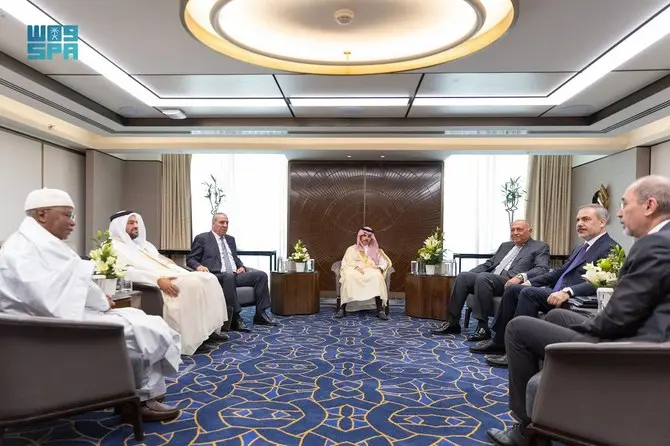Breaking News
Saudi Arabia leads OIC, Arab League demand heavy sanctions against Israel over Gaza
During the discussion, it was vehemently declared that the Gaza Strip is an integral component of the occupied Palestinian territory, and attempts to force the Palestinian people from their land or conduct military operations inside the city of Rafah were harshly condemned.

Sanctions against Israel have been demanded by representatives of the Organization of Islamic Cooperation (OIC), the foreign ministers of Saudi Arabia, and other Arab League nations.
The ministers of the two organizations, which include Saudi Arabia, Jordan, Egypt, Turkey, Palestine, and Qatar, convened in Riyadh on Sunday to deliberate on the Israeli attack on the Gaza Strip, according to Arab News.
At the meeting, which was presided over by Saudi Foreign Minister Faisal bin Farhan, they emphasized how vital it was to impose sanctions on Israel.
Additionally, the Organization of Islamic Cooperation (OIC) and Arab League jointly organized a conference with dignitaries to discuss the events in Gaza.
The ministers demanded both swift action against settler terrorism and the establishment of international legal frameworks to hold Israeli authorities responsible.
In response to Israel’s breaches of international law and war crimes in Gaza and the occupied West Bank, representatives from Jordan, Egypt, Turkey, Palestine, Qatar, and the Organization of Islamic Cooperation (OIC) pushed for a suspension of arms exports.
During the discussion, it was vehemently declared that the Gaza Strip is an integral component of the occupied Palestinian territory, and attempts to force the Palestinian people from their land or conduct military operations inside the city of Rafah were harshly condemned.
The harassment peaceful protestors in Western countries who call for an end to the Gaza conflict and denounce Israeli atrocities against Palestinians suffered was another topic covered by ministers.
Enhancing coordinated Arab and Islamic efforts to bring about an instantaneous end to hostilities in Gaza was another main agenda item, with a focus on protecting civilian lives and guaranteeing the regular distribution of humanitarian goods.
There was an agreement to continue participating in international initiatives toward the recognition of an independent state for Palestine. This includes supporting a two-state solution in accordance with pertinent international decisions, with East Jerusalem serving as its capital within the boundaries of June 4, 1967.


















